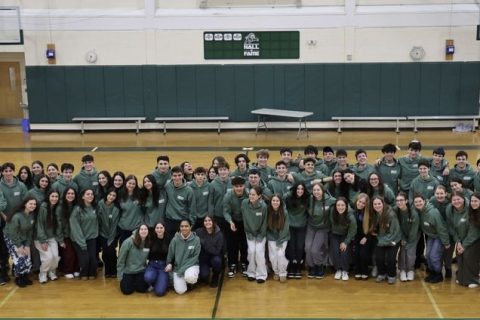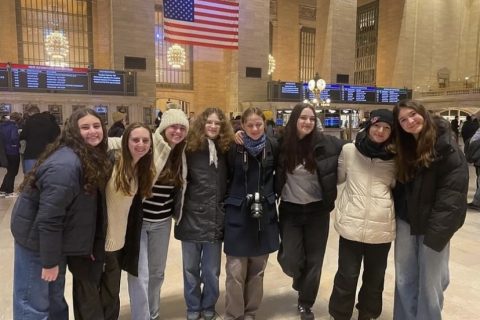by Ariana Wiseman ’24
According to the National Institute on Alcohol Abuse and Alcoholism, children under 21 have an increase in the use of alcohol and other drugs. As a result, The Leffell School knew it had to implement a program to address this ongoing health risk. This year’s Freedom from Chemical Dependency (FCD) week took place from December 6-10.
FCD Prevention Works started working with The Leffell School 13 years ago to educate middle and high schoolers on the effects of chemical dependency.
High school psychologist Bill Blank has been working in the psychology department since before TLS initially collaborated with FCD. Before FCD came into the picture, the middle and high school divisions partnered with a different organization.
“We have used other companies in the past to try to at least have some conversations with kids about prevention of addiction issues when it comes to alcohol and other drugs,” Blank said. “Somehow, though, we became affiliated with FCD and we thought what they did was so thorough that they have become the only place that we have really ever used since.”
Senior Leanna Cutler has participated in FCD events since sixth grade and feels that this program is so much more than just a week of classes.
“It feels so much more personal than just a drug intervention group,” Cutler said. “It’s this group of people who grew up with troubles in substance abuse and they all come and sit with you to tell their story. At that point, it doesn’t feel like a class, but a conversation between the facilitator and the students.”
Unlike the previous programs that TLS used to prevent chemical dependencies, FCD runs its program differently, using the social norms theory. Every four years, students take a survey that asks questions about their ideas about other students’ use of drugs and alcohol. The survey proves to the students that there is less usage than they had expected through data collected from the results.
“They base a lot of their work on the survey and incorporate the data in the education system,” Blank said. “So when kids are confronted that there’s a smaller amount of use than they thought, it makes it more normal [for them] not to use and makes them less likely to experiment in that sense. In addition, all of the facilitators are in long-term recovery so they can not only tell their story, but they can also know the road some kids are going down and have a conversation with them about making healthier choices.”
Director of Student Services Elisha Andron explained that not only do the facilitators come during the school day to educate students, they also hold round table discussions for students in certain grades with their parents.
“This creates a safe community for the students and parents to prevent chemical use,” Andron said. “The 12th grade has a panel which is designed to help them think about their independence in the world. Since this is clearly something that high school students and even middle school students are confronted with, we wanted to get ahead of the game and begin educating before it became an issue.”
This topic not only affects the TLS community but also communities outside of this school.
“Our community is no different than any other public school,” Cutler said. “It’s more of a teen issue so we should not be fooled that there are other kids that are not faced with chemical use. At other schools, they just teach you that drugs and alcohol are bad, and not to do drugs.
“But with FCD it is so much more personal because there are people who aren’t teachers, talking to you. They can’t judge you and they come to tell their story, not just to preach what you should and shouldn’t be doing. It feels so much more real and effective for preventing drug use than just teaching you the facts in a book.”
Many students find it helpful to have discussions with their parents to share their point of view in a calm and controlled setting.
“Most years, I volunteer to lead [the parent discussions] because I feel it is so interesting to incorporate the parents into the topic and have students explain to their parents how they feel about using alcohol and other drugs,” Cutler said.
Since FCD has worked with TLS for over a decade, Blank, Andron and Cutler have seen improvement in the school’s alcohol and other drug usage rates.
“Many kids have sought me out to tell me that they were at a party and decided not to take part in using the addictive chemicals because they had thought about what FCD taught them and re-evaluated the situation,” Blank said.
Andron shared that there is also physical proof that FCD is leaving a positive impact on the teens and TLS as a whole.
“We can tell from the survey data that the rates are decreasing and it’s nice to hear the echoes of FCD voice as it prevails in our community,” Andron said.
Although FCD is only a week-long program, Blank hopes that it impacts the students’ lives in the long run.
“We’re not here to preach and tell kids what they should and shouldn’t do,” said Blank. “We want to make sure kids are armed with all the information and they know what they’re getting themselves into when they have some form of alcohol and other drugs.”





